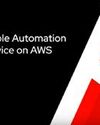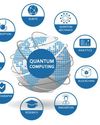
Workplaces have undergone tremendous changes in recent years, from using desktops and laptops, to virtual desktops, the cloud, mobile devices, containers, and so on. A number of commercial tools and platforms have enabled this transformation. Many open source alternative tools have also evolved over time, which reduce cost, avoid vendor monopoly and improve interoperability.
VPNs and remote working During Covid-19, almost everyone was forced to work from home. To quickly facilitate remote access to IT systems, many IT departments started using VPNs for all. Post Covid, hybrid working has become the new normal. Bring your own device (BYOD) adoption and rise of the gig economy has accelerated remote working even further. Remote teams need to access enterprise applications and data in a secure manner. A virtual private network (VPN) gives online privacy and anonymity. It creates a private network from a public internet connection, and establishes a secure and encrypted connection for greater privacy.
A remote access VPN connection allows a user to connect to an enterprise private network from a remote location using a laptop or desktop computer connected to the internet. The user can access the secure resources on that network as if they were directly plugged into the network’s servers. Pulse Secure, Cisco’s AnyConnect, etc, are some commercial VPN solutions used by enterprises. There are a number of enterprise-level, open source VPN solutions that meet the needs of any corporation, large or small. Popular open source VPNs are:
هذه القصة مأخوذة من طبعة February 2023 من Open Source For You.
ابدأ النسخة التجريبية المجانية من Magzter GOLD لمدة 7 أيام للوصول إلى آلاف القصص المتميزة المنسقة وأكثر من 9,000 مجلة وصحيفة.
بالفعل مشترك ? تسجيل الدخول
هذه القصة مأخوذة من طبعة February 2023 من Open Source For You.
ابدأ النسخة التجريبية المجانية من Magzter GOLD لمدة 7 أيام للوصول إلى آلاف القصص المتميزة المنسقة وأكثر من 9,000 مجلة وصحيفة.
بالفعل مشترك? تسجيل الدخول

Linux Foundation launches LF India to foster open source innovation and support in India
The Linux Foundation, a nonprofit organisation dedicated to driving innovation through open source, has announced the launch of LF India.

Red Hat launches Ansible Automation Platform Service on AWS
Red Hat, Inc., has announced the general availability of the Red Hat Ansible Automation Platform Service on Amazon Web Services (AWS) as a managed offering available through AWS Marketplace.

Fedora Asahi Remix 41 is now generally available
The Fedora and Asahi Linux projects have announced the general availability of Fedora Asahi Remix 41, the latest version of this distribution tailored for Apple Silicon Macs.

SageMath: A Second Glance at Cybersecurity
The eighth article in the series on SageMath explores a classical encryption scheme called the Rail Fence cipher and introduces the concept of symmetric-key encryption.

Building Cross-Platform Mobile Apps with lonic
Mobile apps are an intrinsic part of daily life today we use them to order food, groceries, taxis, and more. As these apps need to work across platforms, developers are focusing on cross-platform app development so that they code only once to create apps that function on multiple platforms. lonic is a framework that can help developers build apps faster than with native app development, while saving them time and money. Let’s learn how to install and deploy it.

Open Source AI Frameworks: Integrating AI with lot
Open source Al helps loT devices learn, adapt, and automate actions based on real-time data, improving convenience and security. Here’s an overview of six key open source Al frameworks that help integrate Al with loT, and the challenges they face.

Open Source loT: A Primer for Everyone
Open source IoT platforms promise to play a central role in shaping the future, making it possible for more people and businesses to benefit from smarter, more efficient solutions. We look at a brief history of this tech and explore emerging trends.

Using Open Source and Blockchain to Build Decentralised loT Networks
Explore how blockchain is being integrated with loT to create decentralised networks. Find out how leading open source projects like IOTA and Streamr use blockchain to ensure data integrity, security, and privacy in loT ecosystems.

Internet of Things: Running Language Models on Edge Devices
Let’s delve into the technical aspects, challenges, and benefits of deploying language models on edge/loT devices.

How Open Source is Making Quantum Computing Accessible to Everyone
Open source initiatives are breaking down the barriers to quantum computing, making it accessible to everyone. Explore what quantum computing is, the challenges of traditional adoption, how open source platforms are democratising the technology, and how you can get started in this exciting domain.